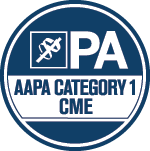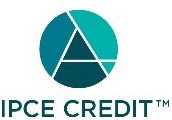Accreditation
This activity is intended for pediatric, general, and geriatric psychiatrists, nurse practitioners, physician assistants, nurses, and other mental health professionals engaged in the care of patients with psychiatric and mood disorders.
After completing this activity, the participant should be better able to:
- Discuss current definitions, criteria, and recent guidelines for treatment resistance in various psychiatric disorders
- Distinguish between pseudo-resistance, primary and secondary treatment resistance
- Identify evidence-based strategies to accurately assess treatment resistance among diverse patients with psychiatric disorders and those with comorbidities
- Evaluate current and novel pharmacological treatment options for treatment-resistant psychiatric disorders, including combination therapies
- Review available and emerging non-pharmacologic treatment options for treatment-resistant psychiatric disorders
- Apply confidence in their ability to communicate effectively and work as part of the interprofessional team to optimize patient care

This activity has been planned and implemented in accordance with the accreditation requirements and policies of the Accreditation Council for Continuing Medical Education (ACCME) through the joint providership of the University of Cincinnati and Global Academy for Medical Education. The University of Cincinnati is accredited by the ACCME to provide continuing medical education for physicians.
The University of Cincinnati designates this live activity for a maximum of 12.75 AMA PRA Category 1 Credits™. Physicians should claim only the credit commensurate with the extent of their participation in the activity.
ABPN Diplomates may select any CME activity relevant to their practice to count towards ABPN MOC requirements.

In support of improving patient care, this activity has been planned and implemented by the Postgraduate Institute for Medicine and Global Academy for Medical Education. Postgraduate Institute for Medicine is jointly accredited by the American Council for Continuing Medical Education (ACCME), the Accreditation Council for Pharmacy Education (ACPE), and the American Nurses Credentialing Center (ANCC), to provide continuing education for the healthcare team.
The maximum number of hours awarded for this Continuing Nursing Education activity is 12.75 contact hours. Pharmacotherapy contact hours for Advance Practice Registered Nurses will be determined and indicated on your certificate.
Postgraduate Institute for Medicine designates this continuing education activity for 12.75 contact hours (1.275 CEUs) of the Accreditation Council for Pharmacy Education.

Postgraduate Institute for Medicine has been authorized by the American Academy of PAs (AAPA) to award AAPA Category 1 CME credit for activities planned in accordance with AAPA CME Criteria. This activity is designated for 12.75 AAPA Category 1 CME credits. PAs should only claim credit commensurate with the extent of their participation.

This activity was planned by and for the healthcare team, and learners will receive 12.75 Interprofessional Continuing Education (IPCE) credit for learning and change.
*Agenda and credit amount subject to change.
Postgraduate Institute for Medicine (PIM) requires faculty, planners, and others in control of educational content to disclose all their financial relationships with ineligible companies. All identified conflicts of interest (COI) are thoroughly vetted and mitigated according to Postgraduate Institute for Medicine policy. The existence or absence of COI for everyone in a position to control educational content will be disclosed to participants prior to the start of each activity.
